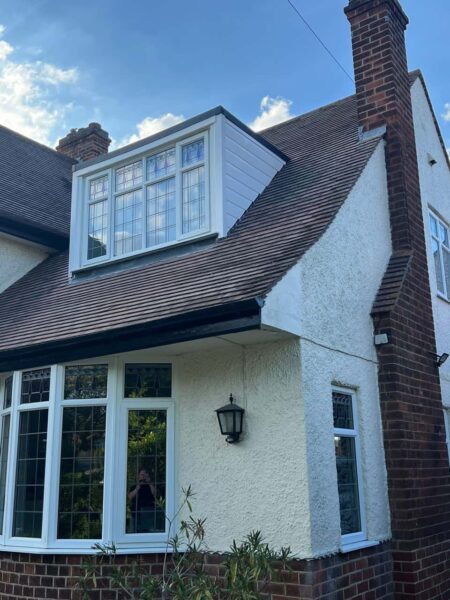How Do Roofs Contribute to Home Energy Efficiency?
Homeowners in Sandy, Bedfordshire, are increasingly recognising the importance of energy efficiency, not just for reducing utility bills but also for minimising their environmental footprint. One often overlooked element in energy efficiency is the role of the roof. Your roof is a critical component of your home’s energy system, offering protection and insulation while significantly impacting energy use.
In this blog, we’ll explore how roofs contribute to energy efficiency and how professional roofing services like those offered by FP Roofing Sandy can make a difference.
The Role of Roof Insulation in Energy Efficiency
Understanding Roof Insulation
A well-insulated roof acts as a barrier, preventing heat from escaping during winter and reducing heat gain during summer. Proper insulation reduces the need for excessive heating or cooling, making your home more energy-efficient. Materials such as fibreglass, cellulose, and foam are commonly used to insulate roofs and maintain stable indoor temperatures.
Common Insulation Issues
Poor or outdated insulation can lead to significant energy loss. Over time, insulation materials may deteriorate, or gaps may form, allowing heat to escape or enter. Regular inspections and professional upgrades are essential to maintaining insulation performance.
The Impact of Roofing Materials on Energy Efficiency
Energy-Efficient Roofing Materials
The type of roofing material you choose can greatly influence energy efficiency. Reflective materials, such as metal roofs with special coatings or light-coloured shingles, help reflect sunlight, reducing the heat absorbed by your home. This is especially beneficial in warmer months, lowering cooling costs.
Choosing the Right Material for Sandy’s Climate
In Sandy, Bedfordshire, a roofing solution that balances insulation and reflectivity is ideal. At FP Roofing Sandy, we can recommend materials suited to the local climate, ensuring your roof contributes effectively to energy efficiency throughout the year.
The Importance of Ventilation in Roof Energy Efficiency
How Ventilation Works
Roof ventilation is crucial for energy efficiency. It helps regulate attic temperatures, preventing the buildup of excess heat in summer and moisture in winter. Poor ventilation can lead to higher energy bills and potential damage to the roof structure.
Signs of Poor Ventilation
If you notice unusually high energy bills or condensation issues in your attic, it could be a sign of poor ventilation. Our team can assess and improve your roof’s ventilation system, ensuring it works efficiently.
The Value of Regular Roof Maintenance
Preventative Maintenance
Regular roof maintenance is vital for ensuring its energy efficiency. A damaged or poorly maintained roof can result in energy loss, higher bills, and costly repairs. Routine inspections help identify and address issues like missing shingles, leaks, or damaged insulation.
Professional Repairs and Upgrades
At FP Roofing Sandy, we specialise in roofing repairs and upgrades designed to enhance energy efficiency. From replacing worn-out materials to installing modern insulation, our services ensure your roof performs at its best.
Conclusion: Invest in an Energy-Efficient Roof
Your roof is more than just a shield against the elements—it plays a significant role in your home’s energy efficiency. By investing in quality materials, proper insulation, and regular maintenance, you can reduce energy costs, improve comfort, and enhance your property’s value.
For professional roofing services in Sandy, Bedfordshire, contact FP Roofing Sandy today. Our team of experienced roofers is ready to help you optimise your roof for energy efficiency, ensuring long-lasting benefits for your home. Call us now to schedule an inspection or consultation.
Call us on: 01767 667 088
Click here to find out more about FP Roofing Sandy
Click here to complete our contact form and see how we can help with your roofing needs.

